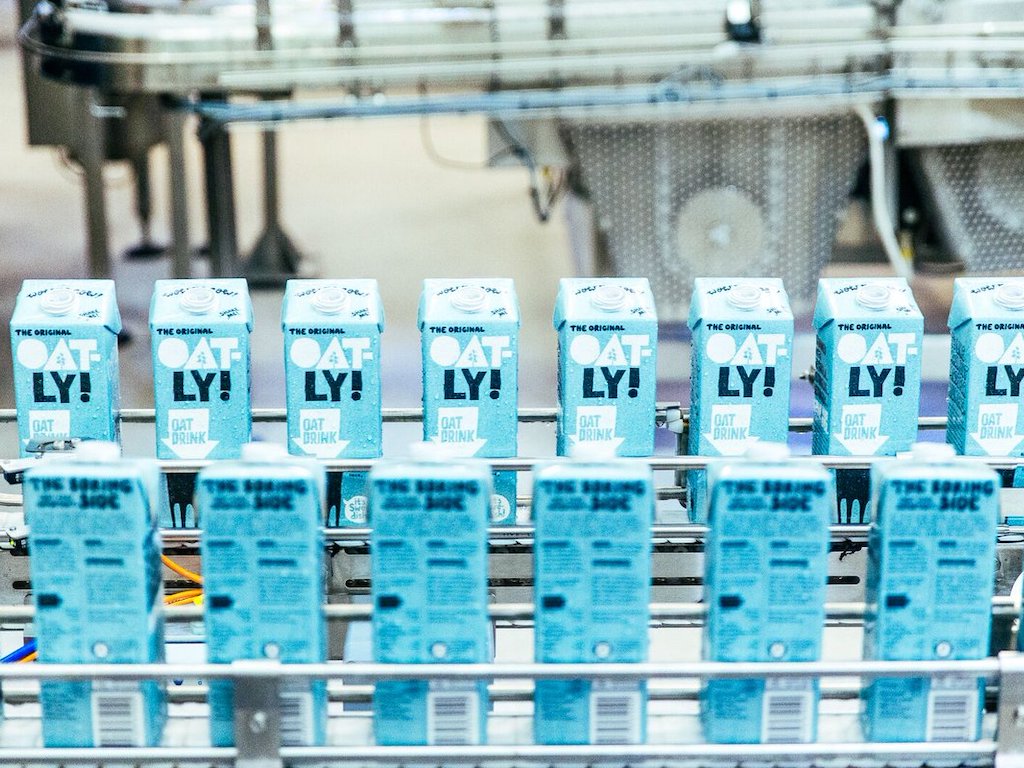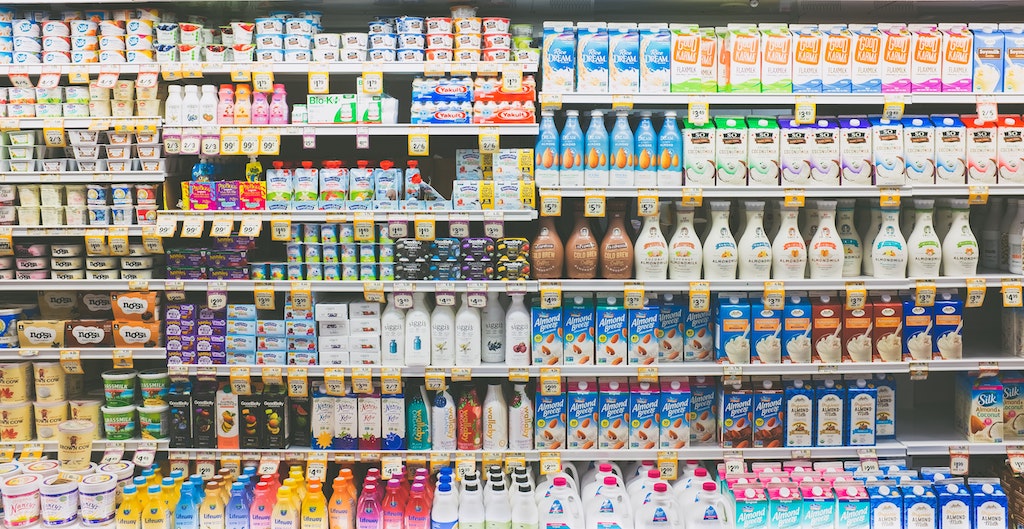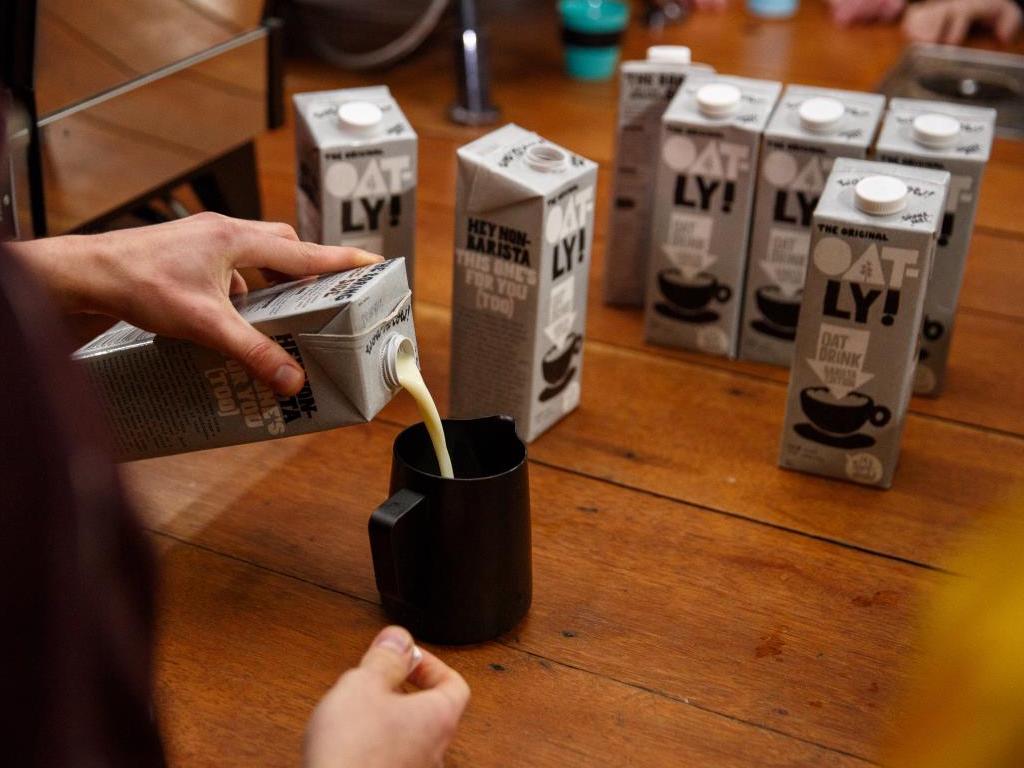3 Mins Read
Oatly’s stock crushing is a salient reminder that fundamentals matter, even for halo products.
Swedish oat milk giant Oatly has seen its shares fall by nearly 20% this week, after news of its lost sales broke and delays in orders were announced. Despite surging demand, the brand missed revenue expectations in its latest quarter and has slashed its sales guidance due to a “quality issue” that could mean binning some of its stock.
Shares of Oatly (OTLY) tanked by almost 20% on Monday (November 15), after the company’s sales forecast saw a downward revision. Compared to its stock market debut in May, the share price is down nearly 60%.
Sales are projected to come in at around $635 million for the year, a reduction from its previous prediction of $690 million. The Swedish oat milk brand recorded just over $171 million in Q3 revenues in the, missing the consensus target of $185 million, based on Bloomberg data.
Supply chain issues

According to Oatly, the missed targets and reduced sales are down to supply chain and logistics-related issues. The company says that container rates are going up, and also cited pandemic-driven disruptions in Asia, as well as a potential “quality issue” that could mean throwing out significant stock in its US production plant in Utah.
The issues experienced in its US facility had a $3 million impact on sales, further adding to its delayed delivery woes from driver shortages and Covid-related foodservice closures.
“In EMEA, we are starting to build supply to meet consumer demand, but the pace at which we expected to increase revenue in new and existing retailers and to open new markets is slower than we anticipated as we navigate a dynamic COVID operating environment,” stated the Blackstone-backed firm in its latest earnings report.
It added that it believed this was “primarily a timing issue” and expects a recovery on retail shelves “in the first half of 2022”.
Competitive plant-based dairy market

While some analysts believe the guided down sales are part of a broader pandemic-related trend affecting all industries, other experts believe that Oatly’s stock price correction is a reminder that business fundamentals still matter—even for popular cult-favourite brands. Before the 20% sell-off, Oatly’s shares were trading at nearly 9-fold its guided revenue.
Oatly, while credited for being the brand that turned oat milk into a global sensation, faces strong competition from long-time vegan milk makers such as Danone-owned Alpro and Silk, not to mention dozens of other dairy-free milk players.
According to data from market research provider Euromonitor International, Alpro takes up around 25% of market share in Western Europe, while Swedish oat milk maker makes up around 9%. Conglomerates like Nestlé are also in on the vegan dairy action, launching new brands like pea milk Wunda.
Plant-based IPO hype
Experts also expect Oatly’s stock fall could have ramifications for upcoming IPOs, especially for other ‘halo product’ plant-based food techs like Impossible Foods and Eat Just. Reports say that the JUST Egg maker could be looking for a $3 billion IPO, while Impossible is eyeing a $7 billion valuation, but the question remains: are these figures justified?
For some investors, Oatly’s represents a much-needed industry correction with one EU-based VC, who asked to remain anonymous, telling Green Queen Media that the stock was never worth its IPO price and that the alternative milk producer remains “a heavy capex business”. They further added that “it’s healthy for the sector to let some hot air out so we can rebuild on more solid fundamentals.”
Lead image courtesy of Oatly.




